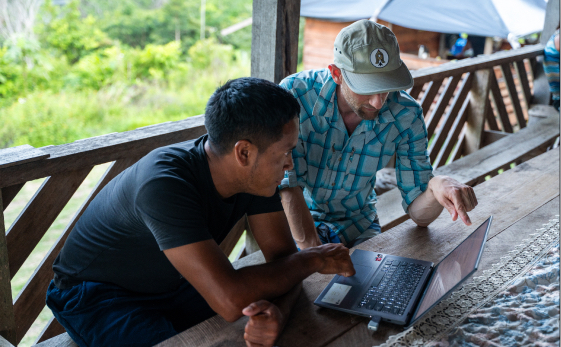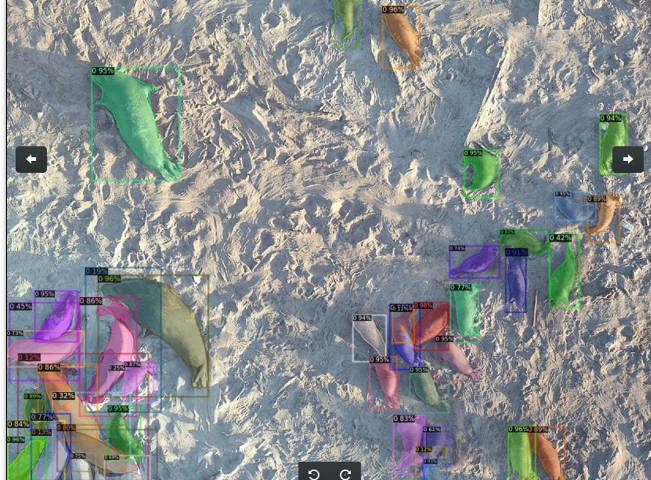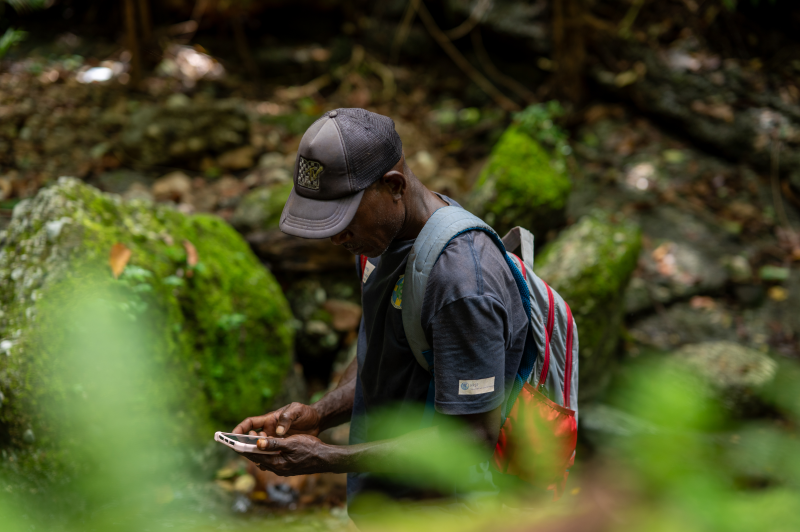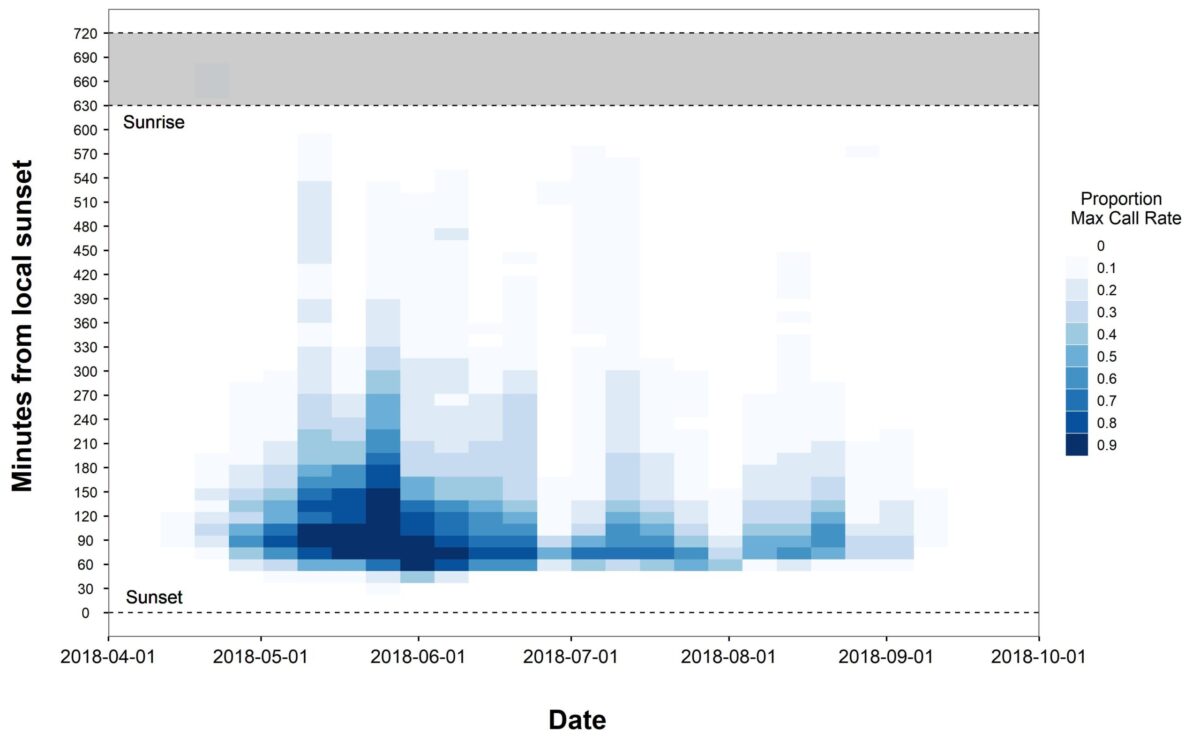What We Do
Our services and tools
Capacity Building

Think of CMI as your one-stop research and engineering department. We collaborate on designing and implementing robust data collection initiatives that are tailored to your specific goals. This could include combining acoustic, image, eDNA, geospatial data, and other cutting-edge methods with more traditional techniques such as point counts, burrow searches, cultural surveys, and observer data. This may also include the collection of non-scientific data, such as Indigenous oral histories, mapping of place names and sacred sites, and cultural indicators of community wellbeing.
Well-designed surveys can empower population surveys, rare species detection, BACI, long-term trends, soundscape ecology studies, impact assessment and prevention and other monitoring goals. We have working knowledge of many currently available acoustic, visual, and geospatial sensor hardware and software packages, in addition to some custom tools we’ve developed. Our in-house expertise in cloud computing, GIS, and IT can support your project goals. We help you identify the suite of tools and methods that best address your needs.
Data Processing

Large and long-term monitoring datasets are often complicated by evolving technologies and methods. Variations in file format, collection protocol, etc. can be a barrier to meaningful analyses, and most software-only data analysis solutions start with the assumption that your files are clean, uniform, and conform to their standards. Data transfer can even be a blocker for big-data projects or groups with internet connectivity challenges.
CMI is unique in that we employ a team of data analysts and technicians who are experts in data intake, cleaning, processing, and annotation. We create scalable workflows to transfer, manipulate, and analyze datasets ranging from a few gigabytes to hundreds of terabytes. Our team employs custom software solutions, automated data checks, programmatic file manipulation, cloud computing, and other tools to build repeatable workflows that can grow with our clients’ needs. We will work with you to ensure your data are tidy and appropriately configured to answer the questions you want to ask of them.
Species & Object Classification

Effective classification unlocks the power of big-data for ecological monitoring.
Our team uses artificial intelligence to efficiently detect events of interest in acoustic and visual data. We deploy state-of-the-art machine learning algorithms such as BirdNET, YOLO, and Perch, and we can also fine-tune these to create custom algorithms for your unique corner of the planet. We have extensive experience building custom classifiers and data exploration algorithms. We can quickly build & deploy early models based on few examples to rapidly iterate and improve performance for your specific goals.
Data annotation is vital for the application of machine learning. CMI has been applying machine learning techniques to ecological monitoring data for more than a decade. We have extensive experience and custom tools to rapidly and accurately create annotations for acoustic and visual data. We provide tools and advice to partners with the capacity to create their own annotations, or do that work in-house with our team of highly skilled analysts and technicians.
Tool Building

Guardian Connector is a free and open-source data sovereignty platform for communities to securely access, explore, and derive insights from their data; which is stored on premises and which they own entirely. Guardian Connector is designed to meet the unique needs and challenges of our Indigenous partners, which include a desire to own and control their data, have access to biocultural metrics that reflect their perspective on wellbeing, easily use datasets from multiple monitoring and data collection tools, and receive near real-time alerts about incursions in their territories. Guardian Connector is suited to serve as a sustainable, centralized, and private platform for Indigenous and any other communities to meet their data management needs in the very long term, without dependency on outside support.
Auditor is a web-based tool for previewing and applying labels to acoustic data. Manual review of acoustic clips is a vital step for creating training data for new machine learning models or model classes. Auditor allows subject-matter experts to label data in a manner suitable for machine learning training. Often, a well-trained ML model can identify signals of interest with degrees of sensitivity and accuracy that allow managers to accept all clips with a suitably high classification score as true positives. For very rare signals, however, we can improve the sensitivity of an analyses by manually reviewing objects or events that a machine learning model identifies as having a high probability of the target signal. This manual review step can yield rigorous metrics of rare signal presence and abundance without the statistical noise of false positive detections.
Data Insights

CMI specializes in analyzing large ecological monitoring datasets. We apply cutting edge statistical techniques to our analysis of data streams; power analyses, Bayesian modeling, trend analyses, GLMMs, and others. Rigorous metrics can guide effective management actions and stand up to scrutiny. Clear and concise visualizations and reports are equally important for understanding and sharing your monitoring results. Our analysts are skilled at distilling complex datasets and creating intuitive figures and maps. These techniques strengthen our partners’ understanding of focal species activity and ecosystem characteristics through space and time.
Data Warehousing

Acoustic sensors, camera traps, and aerial imagery platforms are powerful monitoring tools; capable of generating rich datasets. User-friendly tools are available off the shelf that enable organizations and communities to collect their own data, in accordance with their own needs and vision. Once these data are collected, however, they need to be stored somewhere. Sovereignty, security, redundancy, and a host of other considerations make data warehousing an under-appreciated aspect of ecological and cultural monitoring. Too many organizations invest heavily in sophisticated data collection, just to end up with a closet full of dusty hard-drives!
CMI offers our partners a range of data warehousing options for datasets from twenty gigabytes to hundreds of terabytes. We help organizations design their own local storage, offer turn-key long-term storage through major cloud infrastructure providers, and everything in-between. We can configure systems to enable cross-platform data sharing with partners and have experience working with sensitive data where security is a priority.
Data sovereignty is a vital consideration for ecological and cultural monitoring data collected by indigenous communities. Our Guardian Connector platform and back-end data storage systems are designed to ensure that our clients and partners retain absolute control over the data that they are collecting in the long term. Additionally, CMI is committed to ensuring that our partners can opt out or remove their data from the system at any point with minimal friction or difficulty.